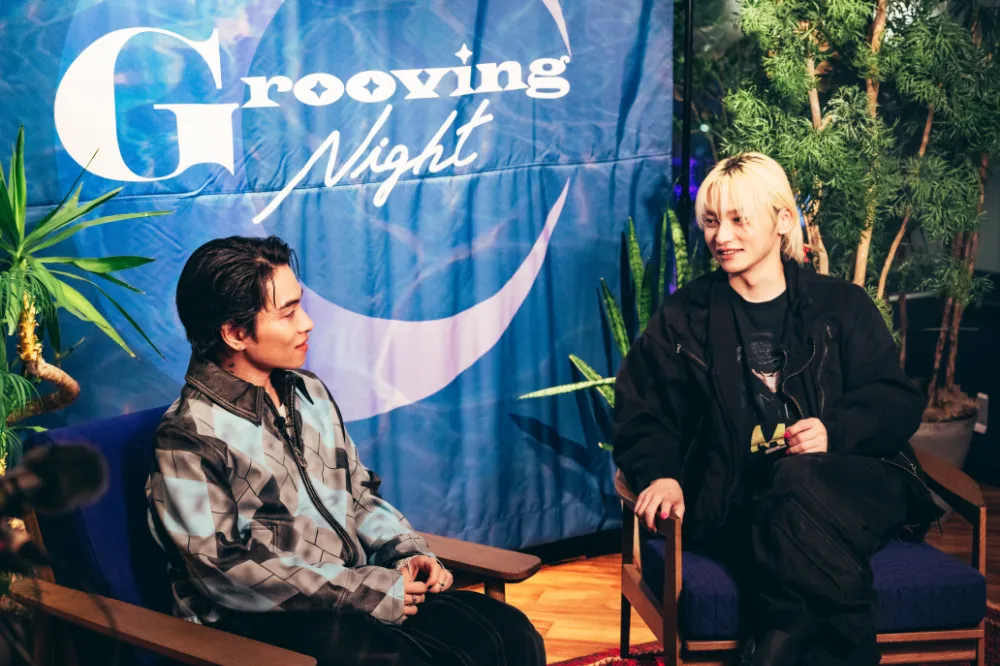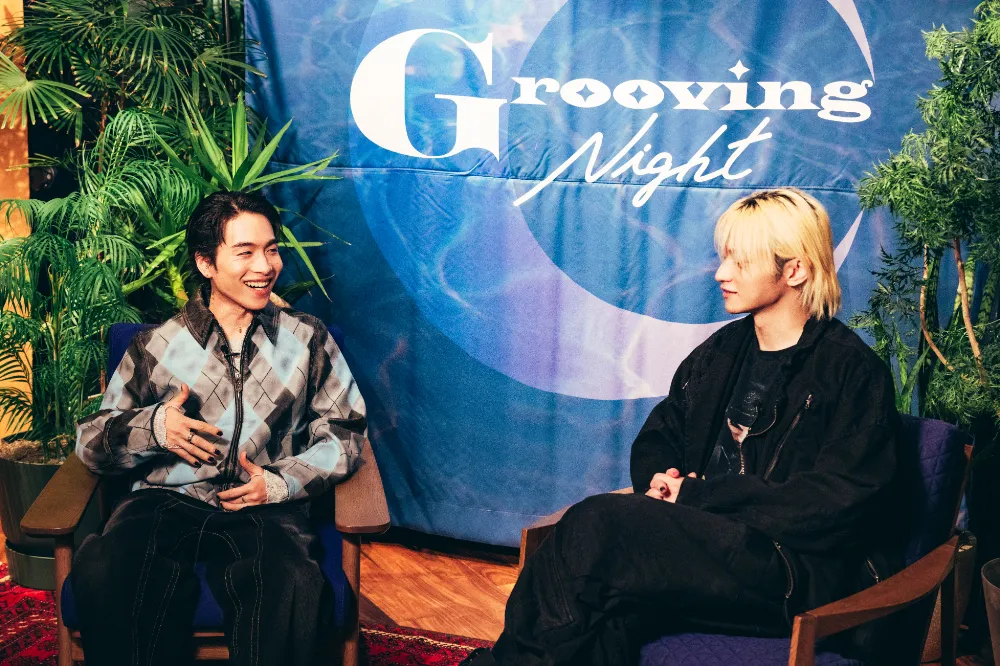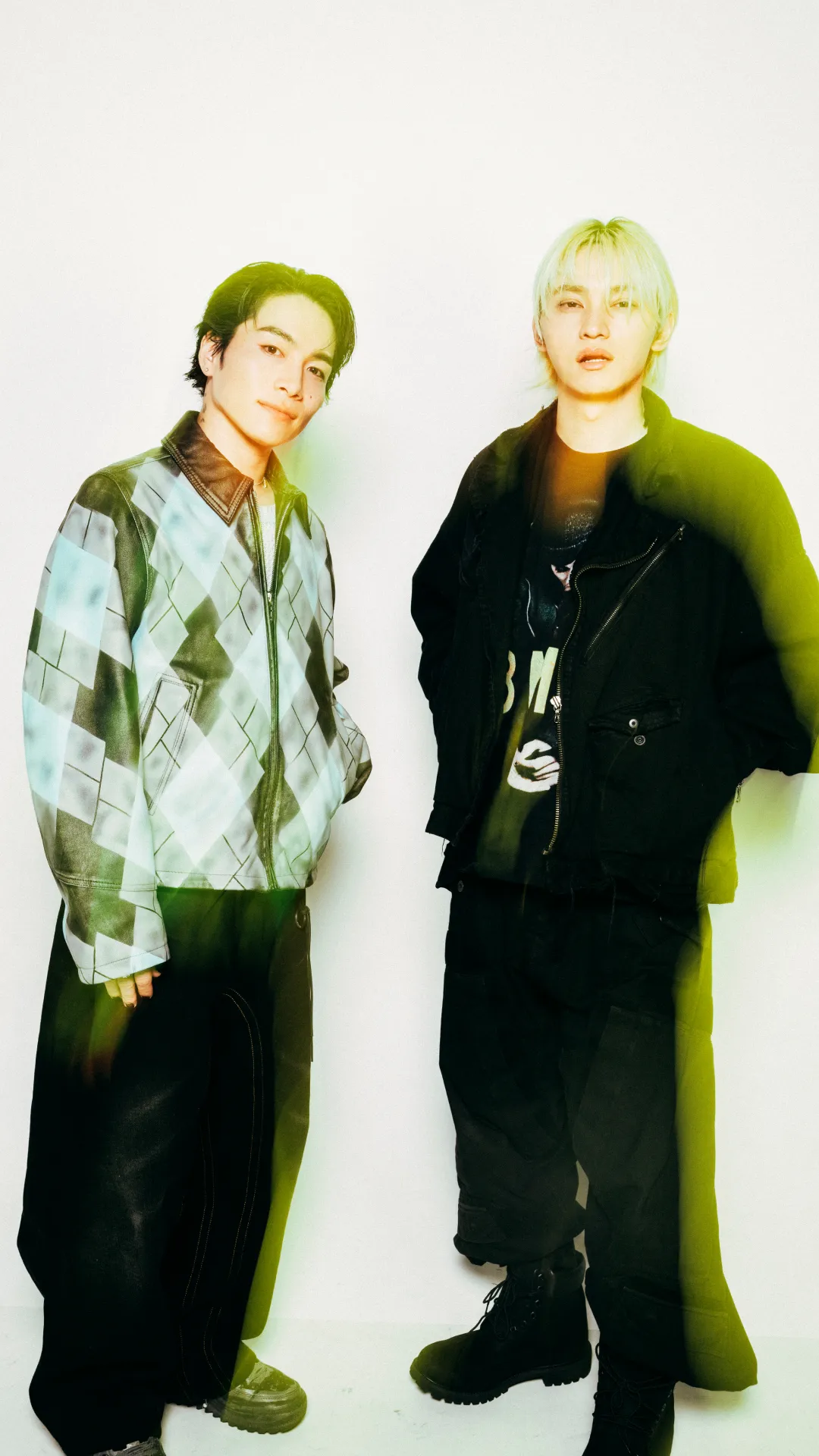INDEX
SIRUP: “We’re in a transition—hoping the change comes for the future, even if we don’t benefit.”
What do you think about collaborations that transcend generations and borders?
SKY-HI: When it comes to collaborations, I didn’t see any idols who were also active underground rappers when I was young. If there had been, being invited to feature would have been a huge motivation to reach different audiences. For example, RYUKI from MAZZEL wants to be known as the rapper of MAZZEL, and that’s his motivation. My old label used to tell me that being famous in a group would allow me to pursue solo work later, but at BMSG, that’s not how we operate.

I think the underlying emotion is anger, which is similar to what SIRUP feels.
SIRUP: Yeah, that’s true. I haven’t reached the point where the fire dies down in my life yet.
SKY-HI: The drive you have often correlates with trauma.
SIRUP: That might be true. When it comes to collaborations with overseas artists, in Japan, the trauma and anger are visible, but being abroad, different values can make things feel easier. Of course, other countries have their own troubles and anger, and I end up connecting with people who share those feelings. But, I still see it as a search for comrades, and I’m deeply grateful to those who’ve met or helped me.
SKY-HI: I reached a point of despair around 2017–2018 in Japan. The debates over being an idol or a rapper—was I still hearing this? I thought once I turned 30, the discussions about my looks and idol status would disappear, but that wasn’t the case. When I tried growing a beard or shaving my head, it felt like I was letting the haters win. But in other Asian countries, it’s more normal. No one looks at you weirdly, whether you’re a rapper or an idol.
I started out saying “I felt comfortable when I ran away,” but the friends I made through this experience were fun, and it opened doors I didn’t know existed. And since it also leads to opening “doors that I didn’t know existed” for others, I felt like I wanted to do my best.
SIRUP: SKY-HI has indeed opened many doors. Back in 2010, it was extremely rare for an idol to step into the underground scene, and even in Osaka, people were talking about SKY-HI. Now, younger artists like Aile The Shota see it as normal, not just something influenced by SKY-HI. The times have changed, and while Japan is shifting, there’s a feeling of transition. Even if it doesn’t get easier for us now, hopefully, these changes will make a difference in the future.

SKY-HI: I think so too. I’ll continue to push as an artist for a few more years, but I’m certain of one thing. In about five years, when Novel Core is around 30, he’ll have reached a level where he won’t need to be labeled as a rapper, idol, or rocker—he’ll be beyond that, and at that point, I’ll be reevaluated as well.
A guaranteed outcome.
SIRUP: There are definitely some guaranteed outcomes like that, not just with Novel Core.
SKY-HI: All of the artists I work with have incredible potential, talent, and motivation, and I’m really happy they’re with us. I’m also proud that my style is being passed down, but at the same time, I feel the responsibility. That’s why, when I step on stage with a mic, I don’t want my performance to fall short. I love my artists so much, and I feel the pressure that when they introduce me to others, I want them to think I’m cool. This pressure has started to build up since last year.


























